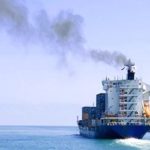Don’t get distracted by freight spikes

The financial crash of 2008 heralded a prolonged period of depressed freight rates which continued to dog the industry for a long while. The ongoing trend for slow steaming quickly followed and was joined by a concerted effort to contain operating costs and a never-ending search for efficiencies – financial, operational and environmental. Occasionally, events conspire to relieve the tedium of low-level vessel earnings and to inject some excitement into what is otherwise a fairly lacklustre market.
Tanker operators are the current beneficiary of a rapid spike in rates driven by a near-perfect storm of macro and micro political events. The assault on Saudi oil processing plants, attacks on tankers operating in and around the Strait of Hormuz, sanctions on Iran and Venezuela, and a rush to comply with IMO 2020 have all combined to remove a sizeable chunk of tanker tonnage from the market. Consequently, demand has rapidly overtaken supply and the sector is booming. Daily earnings in excess of USD $200,000 have been reported and tanker owners are making hay in the sunshine.
But nothing lasts forever, and the market will cool rapidly as charterers take a second look at the excessive rates and market dynamics begin to rebalance. Although these occasional spikes offer a little respite, owners must not give-up on their search for efficiency and cost-saving.
A clean hull helps contain costs
Cost efficiency comes in many guises and the application of the optimum hull coating is one tool in the box. Maintaining a smooth hull that is free of fouling will reduce drag and, in turn, reduce the amount of fuel required. Opting for a coating that is long-lasting as well as being quick and easy to apply will save further costs both in terms of manpower and dry-dock fees. There are many solutions on the market, but Hempel’s Hempaguard MaX has transformed the way the market views a modern fouling defence coating.
The pinnacle of a 30-year R&D programme, Hempaguard MaX has taken hull protection to a new level to deliver up to 14 per cent savings on fuel and a guaranteed maximum speed loss* of 1.2 per cent over five years (according to ISO 19030), with extremely high smoothness. It does this through a unique three coat system comprising Hempaprime Immerse 900 (an anti-corrosive primer), Nexus II (the tie coat) and Hempaguard X8.
It is the topcoat – Hempaguard X8 – that delivers the unrivalled fouling defence properties. Incorporating Hempel’s enhanced patented Actiguard® technology, this coating couples silicone with an enhanced hydrogel microlayer to achieve high smoothness in the water and maintains the active biocide ingredient at the surface of the coating where it is most effective. This prevents marine organisms from latching onto the hull. Hempaguard X8 can achieve a much greater effectiveness with the absolute minimum use of biocide.
Further efficiencies
Further efficiencies are achieved through Hempaguard’s three coat application. Most other solutions require five coats and so significant savings are generated both in terms of applicator time, time in dry dock, and reduced off-hire periods.
Alongside volatility in freight rates, trading patterns are also becoming uncertain, particularly in light of changing commodity supply bases and consumer demand. This means vessels must have the flexibility to trade globally if on-hire days and earnings are to be maximised. The likelihood of fouling increases and decreases according to geography, ocean conditions and temperature. Some antifoulings are only suitable for specific conditions which affects a ship’s ability to perform optimally across the globe.
Market unpredictability also results in prolonged idle times as ships await cargoes. Similarly, the trend for slow steaming is also a factor in a ship’s ability to maintain a clean hull. Fortunately, Hempaguard MaX retains its optimum effectiveness irrespective of ocean conditions, vessel speed or time spent idle.
Spikes in freight rates are always welcome as the industry awaits the return of more sustainable vessel earnings. Although the general supply/demand dynamics are likely to rebalance over the coming few years, it is unlikely that the super-highs of pre-2008 will ever be seen again. Current market conditions are most probably the new normal. This makes it even more important for owners to seek out efficiencies from every angle. And those that impact positively on fuel reduction will take them ever closer to achieving the carbon reduction targets that the industry, as a whole, is chasing.
Hull coatings are often forgotten as a vital part of this puzzle. But selected carefully and applied properly, an optimum fouling defence solution will make a significant difference.
*Speed loss: If a vessel’s main engine is set at a certain power output, it will propel the ship through the water at a certain speed. Over time, fouling accumulation will increase drag and cause the speed of the ship to reduce even if the main engine power output remains constant. This reduction in speed is termed “speed loss”.
Source: Hempel Marine, By Davide Ippolito, Head of Marine Group Product Management, Hempel A/S, Arranged Exclusively for Hellenic Shipping News Worldwide (www.hellenicshippingnews.com)

 Hellenic Shipping News Worldwide Hellenic Shipping News Worldwide, Online Daily Newspaper on Hellenic and International Shipping
Hellenic Shipping News Worldwide Hellenic Shipping News Worldwide, Online Daily Newspaper on Hellenic and International Shipping























 PG-Software
PG-Software